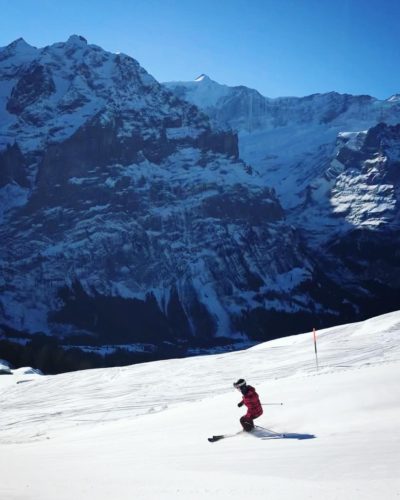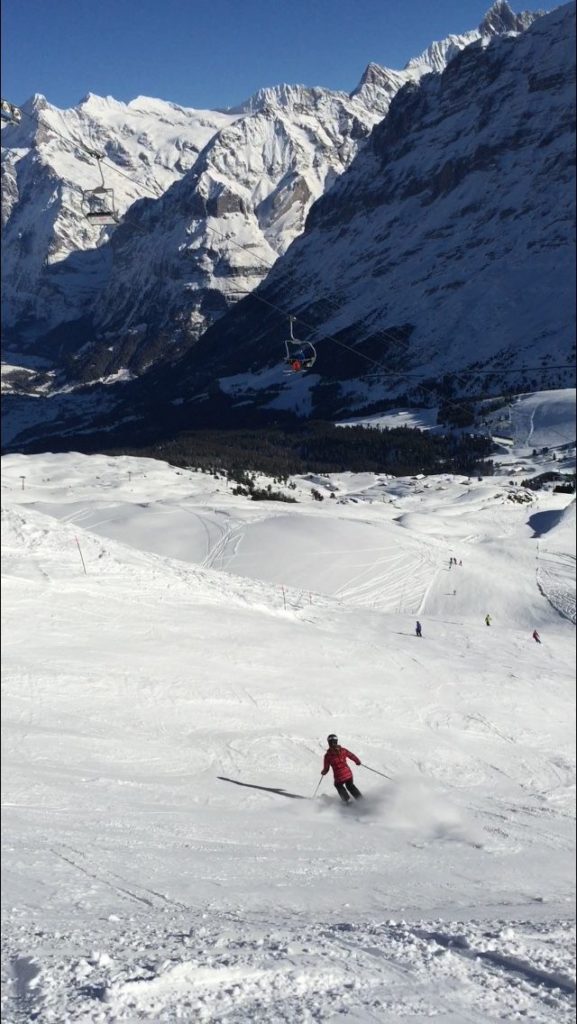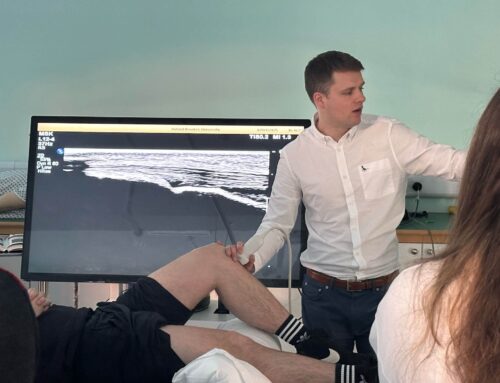Ski season is hurtling towards us faster than Charlie Guest. In all the excitement, how do you stay safe from injury?

Several of the Elite Physical Medicine team will soon be heading to the slopes, as will many of our clients. Since skiing is one of the most high-risk winter sports, it unfortunately comes with more accidents and injuries than other sporting activities.
The good news is – there are plenty of things you can do before and during your trip to reduce your risk, as Chartered Physiotherapists Gabrielle Jackson and Emma Hurst explain…
Check your strength and fitness
Not many of us prepare for the intense physical demand that skiing places on the body. Whatever your age or experience level, skiing requires a good balance of strength in the legs, as well as postural control and stamina.
Regardless of how competent a skier you are, a physiotherapy assessment in the lead up to your skiing holiday is a great way to get an expert view of your current strength, balance, coordination, mobility, and cardiovascular fitness. By identifying potential risk factors now, you’ll have time to rectify them before you hit the slopes. Nothing is worse than knowing you could have prevented an injury!
Common ski injuries
Physiotherapists often find their patient caseload of anterior cruciate ligament injuries increase significantly during the ski season.
The knee is the most common joint affected by skiing due to the increased force that is placed on it with twisting and turning movements. High amounts of stress can be placed on knee ligaments, which can tear or rupture during falls.
Upper limb injuries from sprained wrists to fractured elbows and dislocated shoulders are also common as a result of falls onto the snow or ice.
Your morning mindset
There’s a huge amount of fun to be had on the slopes, whether they’re green, blue, red or black, and ski holidays are a wonderful way to chill out.
But, because of the risks, skiing does require some focus.
Even if you’re not a serious skier, shifting your mindset towards how you’d approach other exercise and training sessions, will help you stay safe and get the most out of your trip.
Make sure you stay hydrated, keep warm and try to not push your own limits.
Have a read of Gabrielle and Emma’s skiing Do’s and Don’ts…
DO keep fit and eat well in the run up to your ski holiday.
DO book an appointment with Gabrielle or Emma, who are keen skiers and offer in-depth assessments, both in the lead up to and on return from skiing if any injury has occurred. Get your strength assessed to hopefully limit injuries.
DO keep warm on the slopes.
DON’T go all out on the final lift when your muscles are fatigued. The cumulative effect of skiing for hours, day after day, can make you more prone to injury so avoid pushing yourself too hard on the last day of your trip.
DON’T ignore an injury – if you’re in pain, get assessed as soon as you can. If you don’t treat and manage an injury, it could jeopardise your ability to get back out in the snow the following season.
DON’T assume that rest is the only way to recover from a ski injury – come and see one of the team, who will likely advise you how to keep active safely and work on your strength to recover faster
DO share this article with someone you know, who could benefit.
To arrange your session with either Gabrielle or Emma, please contact the clinic.




